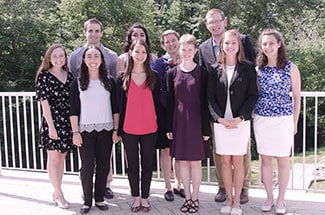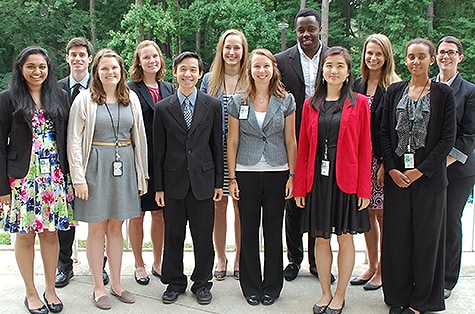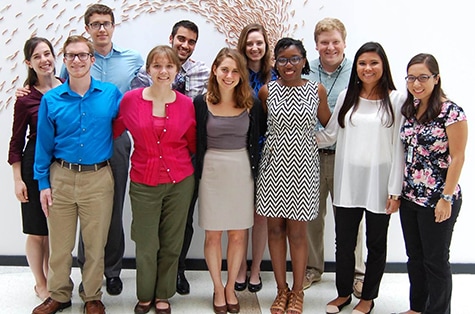Collegiate Leaders in Environmental Health (CLEH)
We are taking a pause for the 2019 CLEH summer training program and not soliciting applications at this time. Please apply for other opportunities on our home page www.cdc.gov/fellowships.
This is a paid 9-week summer environmental internship for current undergraduate students (rising junior or senior) who are passionate about the environment, interested in human health, and curious about how they are linked.
A healthy environment should be capable of sustaining a healthy population; however, with 7 billion people on the earth, there is a need for more sustainable interactions between humans and the environment. Environmental issues such as overpopulation, air pollution, food shortage, natural disasters, water contamination, and exposure to toxic substances provide challenges to human health. Human influence on the environment is the main focus of environmental studies; however there is a growing need to evaluate the effect that the environment has on human populations.
Harmful environments can increase the risk of many health conditions: asthma, heart disease, cancer, neurological disease, infections, endocrine dysfunction, injuries, and more. Healthy environments, on the other hand, can promote good health in many ways—protecting people from toxic exposures, providing safe water and clean air, and encouraging healthy behaviors such as outdoor recreation.
The link between the environment and health is aptly referred to as “environmental health.” Environmental health as a discipline focuses on the interrelationships between people and their environment, promotes human health and well-being, and fosters safe and healthy living. This branch of public health is concerned with all aspects of the natural and built environment that may affect human health.
Environmental health professionals engage in a broad and exciting range of activities—basic and applied research, surveillance and tracking, direct health protection efforts such as disaster preparedness and response, health education, patient care, policy support, and more. For students interested in the environment, health, or both, few fields are more fascinating.




